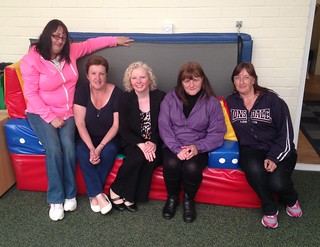Recently I met with a local kinship care group to hear first-hand the challenges they face as kinship carers in Fife. The meeting, which took place in Fair Isle Nursery school, also offered the carers the opportunity to quiz me on care issues within the Parliament.
It was great to meet local kinship carers at Fair Isle nursery and hear about the children they care for. They are providing grandchildren, nieces and nephews with stable loving homes when their parents, for whatever reason, aren’t able to do so.
The group, who meet regularly, are open to new members from within the Kirkcaldy and surrounding areas. Their support group is a great idea and is open and welcoming to other kinship carers in the area. They meet every Tuesday and I would urge other kinship carers to head along for a cup of tea and a chat along with support for the important role they are doing. Bringing up children is hard work, and we should do all we can to support kinship carers.

Kinship care is where a member of the child’s extended family looks after the child, and the group meet regularly at the nursery for respite and support. Many carers and their families, whilst showing considerable levels of dedication, are still facing struggles to provide for their family. It is vital that they are given the help both locally and nationally that matches their level of dedication.
I had previously met with local Kirkcaldy and Burntisland carers outside Parliament during the passage of the Children and Young People’s bill. Scottish Labour attempted to amend the bill to ensure that a minimum rate of national support for kinship carers to end the postcode lottery. Currently financial support can differ according to local authority, however the Scottish Government failed to support Labour’s amendments to change this.
Whilst the Children and Young People’s bill did make some progress towards achieving this, it could have gone further and I was disappointed that the Government rejected Labour’s amendment for a minimum rate of national support.
Kinship carers are family members such as grandparents and aunts and uncles, who have taken the hard but often essential decision to look after the child. Everyone wants what is best for their family and we should be making it easier for children to remain with their extended family where possible.
Kinship care can ensure family bonds are maintained and can provide an alternative support to children going down the foster care route. As such we should be striving to provide carers the support that they need and I will continue to be raising this issue in Parliament.
